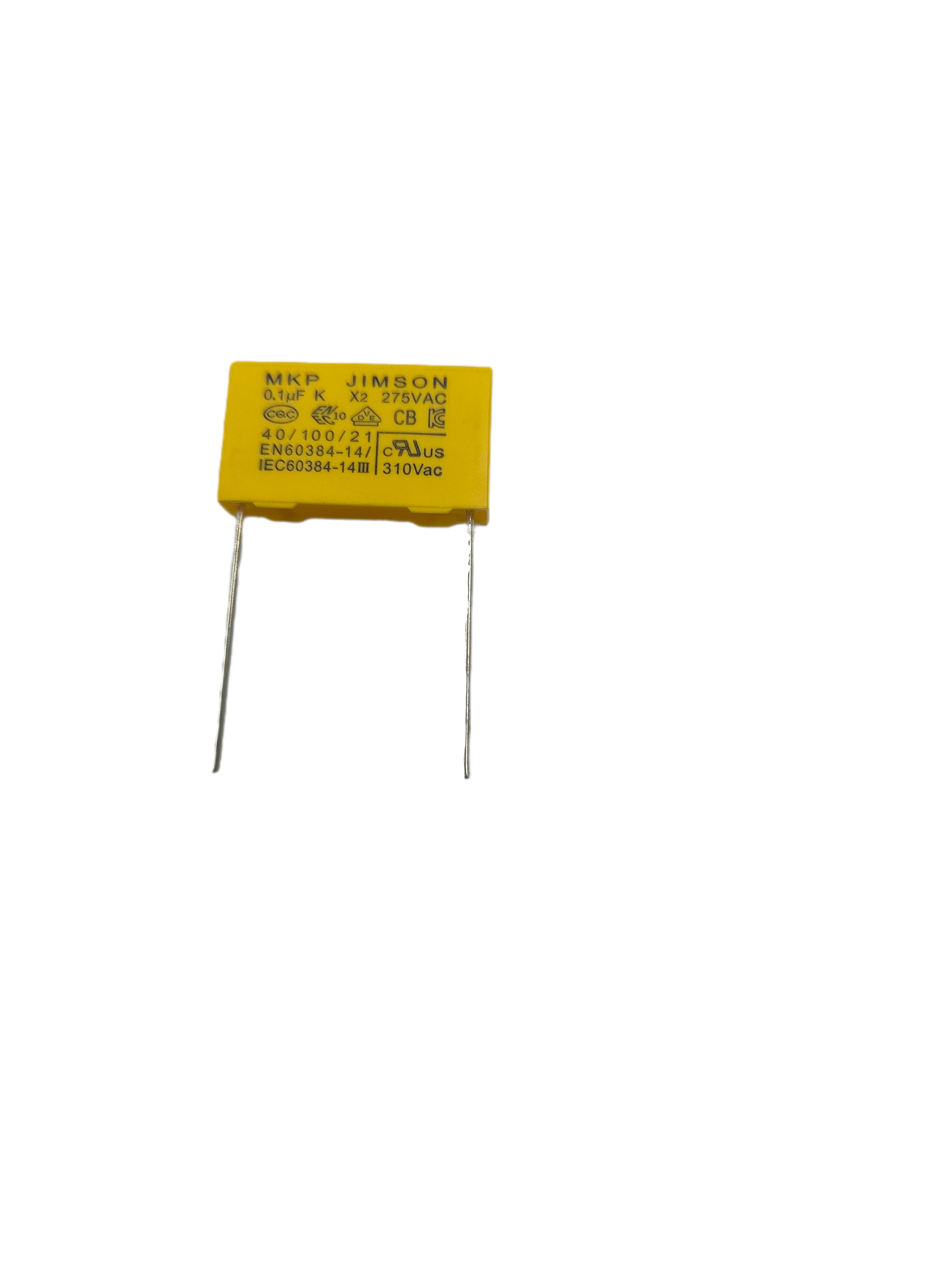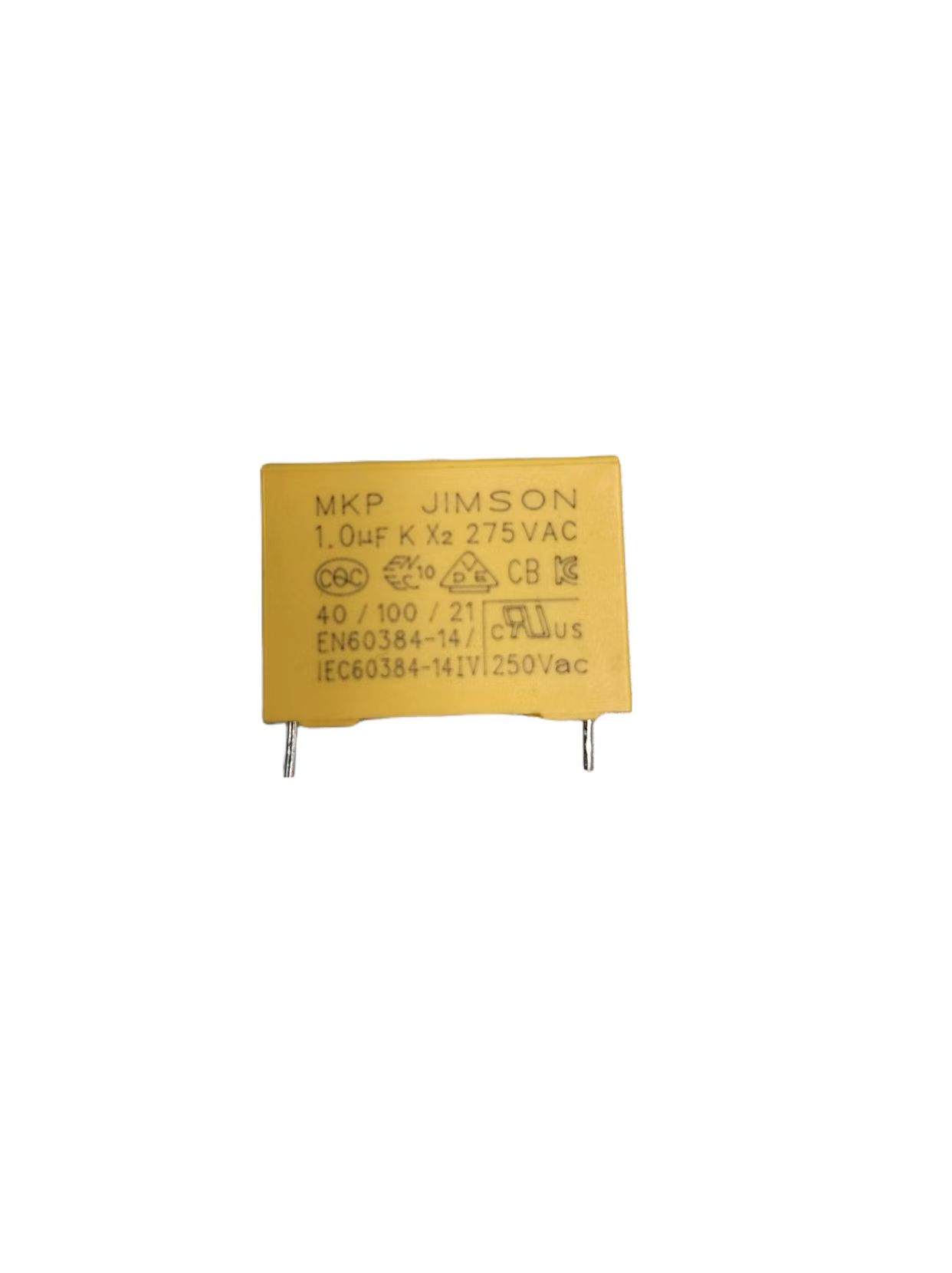In the realm of electronic components, capacitors play a vital role in storing and releasing electrical energy. Among the various types of capacitors, high voltage polypropylene film capacitors have gained prominence due to their exceptional electrical properties and versatile applications. This article delves into the intricacies of high voltage polypropylene film capacitors, exploring their construction, characteristics, applications, and benefits.
Understanding Capacitors:
Before delving into the specifics of high voltage polypropylene film capacitors, it’s important to have a foundational understanding of capacitors themselves. A capacitor is an electronic component designed to store electrical energy in an electric field between two conducting plates. When a voltage potential difference is applied across the plates, they accumulate an electric charge, thus storing energy. This stored energy can then be released when needed.
Construction and Composition:
High voltage polypropylene film capacitors are built using advanced materials and precise engineering techniques. The heart of these capacitors is the dielectric material, which separates the conducting plates and determines the capacitor’s characteristics. In the case of high voltage polypropylene film capacitors, the dielectric material is made of polypropylene film, a type of polymer known for its excellent electrical insulation properties.
The capacitor’s construction involves winding layers of polypropylene film, with metal foil acting as the conducting plates. The winding process allows for increased capacitance in a compact form factor. Additionally, the winding can be impregnated with a dielectric fluid to enhance the overall performance and durability of the capacitor.
Key Characteristics:
High voltage polypropylene film capacitors exhibit several key characteristics that make them suitable for a wide range of applications:
- High Voltage Rating: As the name suggests, these capacitors are designed to withstand high voltage levels, making them ideal for applications where voltage spikes or fluctuations are common.
- Low Dielectric Loss: The polypropylene dielectric material used in these capacitors is known for its low dielectric loss factor. This translates to efficient energy storage and release, contributing to the capacitor’s overall efficiency.
- Stability: High voltage polypropylene film capacitors offer excellent capacitance stability over time and temperature variations. This stability is crucial for maintaining consistent performance in various environments.
- Low Dissipation Factor: The low dissipation factor of these capacitors indicates minimal energy loss as heat during operation, resulting in enhanced efficiency and reliability.
- Self-Healing Property: In cases of localized dielectric breakdown, the polypropylene film has a self-healing property. This means that the breakdown area gets partially repaired, preventing catastrophic failure and extending the capacitor’s lifespan.
Applications:
The versatility of high voltage polypropylene film capacitors lends itself to a wide array of applications across industries:
- Power Electronics: These capacitors find extensive use in power electronics applications, including voltage converters, inverters, and motor drives, where their high voltage tolerance and efficiency are crucial.
- Renewable Energy Systems: High voltage polypropylene film capacitors are employed in renewable energy systems like solar inverters and wind turbine generators, contributing to the efficient conversion of energy.
- Industrial Equipment: In industrial environments, these capacitors are used in equipment such as power factor correction systems, welding machines, and uninterruptible power supplies.
- Automotive Electronics: High voltage polypropylene film capacitors have a place in automotive electronics for applications like electric vehicle charging stations and on-board power management systems.
- Medical Electronics: Medical devices such as X-ray machines and MRI scanners benefit from the stability and reliability of these capacitors.

Benefits and Considerations:
The use of high voltage polypropylene film capacitors offers several advantages:
- Reliability: These capacitors are known for their long operational life and stable performance, reducing the need for frequent replacements.
- Efficiency: The low dissipation factor and high voltage tolerance contribute to efficient energy storage and transfer.
- High Insulation: The polypropylene dielectric material provides excellent insulation properties, reducing the risk of electrical breakdown.
- Compact Design: The winding technique allows for a compact design, making these capacitors suitable for space-constrained applications.
However, it’s essential to consider certain factors:
- Cost: High voltage polypropylene film capacitors can be relatively more expensive compared to some other capacitor types due to their advanced construction and materials.
- Size: While compact, these capacitors might still occupy more space compared to some modern miniaturized capacitors.
- Environmental Factors: The choice of dielectric material might impact environmental considerations. It’s important to ensure proper disposal and recycling practices.
Advancements and Future Outlook:
The field of capacitor technology is constantly evolving, and high voltage polypropylene film capacitors are no exception. Ongoing research and development efforts are focused on refining their design, materials, and manufacturing processes to enhance their performance and reduce costs. As the demand for more efficient and reliable energy storage solutions continues to grow, these capacitors are positioned to play an even more integral role in various industries.
Advancements are being made to address some of the challenges associated with high voltage polypropylene film capacitors:
- Miniaturization: Efforts are underway to develop smaller and more compact high voltage capacitors without compromising their performance. This is especially important in applications where space is limited.
- Cost Efficiency: Researchers are exploring ways to optimize the manufacturing process, use alternative materials, and adopt efficient production techniques to bring down the cost of these capacitors.
- Environmental Sustainability: With an increasing emphasis on environmental responsibility, capacitor manufacturers are looking into sustainable materials and recycling options to minimize the environmental impact of these components.
- Temperature Performance: Capacitors operating at high temperatures can experience performance degradation. Researchers are investigating ways to improve the temperature stability of high voltage polypropylene film capacitors for extreme environments.
- Integrated Solutions: Integration of capacitors with other components and technologies is being explored to create more compact and efficient energy storage systems.
Conclusion:
High voltage polypropylene film capacitors stand as a testament to the innovation and precision in modern electronics. Their ability to store and release electrical energy efficiently, coupled with their high voltage tolerance and stability, positions them as vital components in a wide range of applications. From industrial machinery to renewable energy systems and beyond, these capacitors play a pivotal role in powering our technologically advanced world. As technology continues to evolve, high voltage polypropylene film capacitors are likely to remain at the forefront of energy storage solutions, powering innovation and progress for years to come.
Related Products






